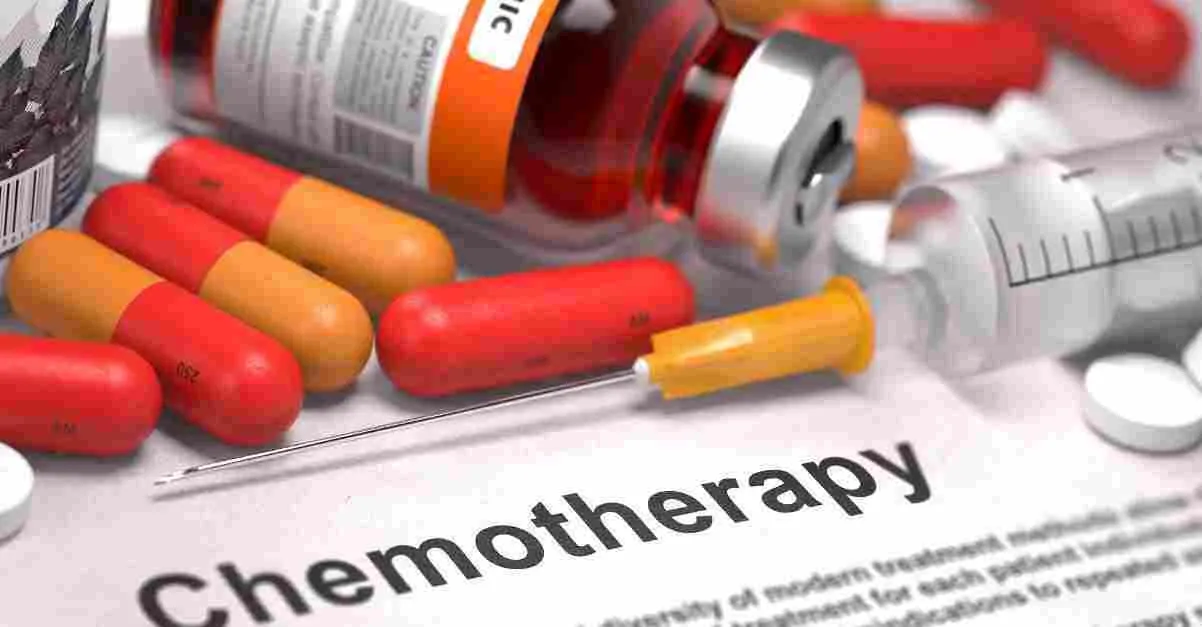
Reduce chemo side-effects
How to reduce chemo side-effects
Table of Contents
- What I need to know about chemo
- How to reduce side-effects, protect vital organs
- Request a Chemosensitivity Test
- Check out Low Dose chemo (IPTLD)
- Make chemotherapy work better
- Reduce Cancer Cachexia
- Strengthen your Immune System
- Reduce Nausea and vomiting
- Avoid Infections
- Reduce Chemo-induced Peripheral Neuropathy (CIPN)
- Reduce Chemobrain
- Reduce your Stress and Anxiety
- Reduce Phlebitis
- Reduce Heart problems
- Reduce Kidney problems
- Reduce Liver problems
- Hand-Foot Syndrome
- Oral Mucosis
- Taste problems
- Treat Insomnia
- Improve general Fatigue
- Diarrhea
- Quality of Life
- Hair loss (Alopecia)
What do I need to know about chemotherapy?
Chemotherapy is highly toxic to the human body. The side-effects can cause terrible suffering, organ damage and death. Therefore, if you are having this treatment, it is vitally important that you do everything possible to mitigate its effects.
Your medical team will prescribe pharmaceutical drugs to deal with some of the side-effects resulting from either cancer or cancer treatments but these can also cause serious side-effects of their own. However, there are many other evidence-based solutions you can use to reduce side-effects, make your treatment work better and safer, and significantly improve your chances of survival. These solutions (most of them natural) are listed below – along with scientific studies showing their benefits. Of course, everyone is different so there’s no guarantee any of these solutions will work for you. But then again…
How can I reduce side-effects, protect vital organs, and improve treatment outcomes?
1. Request a Chemosensitivity Test

Chemosensitivity tests reveals which anti-cancer drugs are effective at killing each patient’s cancer cells and which agents are not effective. The most promising drug regimen can be selected for each cancer patient, increasing the odds for treatment success. At the same time, ineffective drugs are avoided.
This spares the patient needless exposure to harmful side effects from drugs that can’t possibly help them. Further, valuable treatment time is not wasted…
Source: Weisenthal Cancer Group
Chemosensitivity Tests are also known as Personal Cytometric Profiling.
This study published in the Journal of Clinical Oncology concluded:
…the aggregate and fairly consistent evidence of these data suggests cytometric profiling to be accurate, to improve overall tumor response, and to increase 1-year patient survival.
This article published in Chemosensitivity Testing in Oncology. Recent Results in Cancer Research, vol 161 says: In vitro drug response testing, …has recently been demonstrated to accurately predict how cancer patients will respond to chemotherapy.
Download Free eBook How to reduce chemo side effects
2. Check out Low Dose Metronomic Chemotherapy [mCHT]
Treatment in which low doses of anticancer drugs are given on a continuous or frequent, regular schedule (such as daily or weekly), usually over a long time. Low-dose chemotherapy causes less severe side effects than standard chemotherapy. – National Cancer Institute.
An expert opinion written on behalf of the “Metronomic Chemotherapy in Advanced Breast Cancer” Study Group states: Although there is a lack of randomized clinical trials in mBC [metastatic breast cancer] , mCHT has been shown to be effective and safe in multiple studies conducted in these patients, as reviewed previously. Overall, these studies suggest that mCHT has a favorable toxicity profile and is associated with a durable response.
Insulin Potentiated Therapy (IPT)
With IPT the insulin works on the cell membranes and allows chemotherapy to target cancer cells. Thus, it is the chemotherapy that kills the cancer cells, however, because of the insulin, the amount of chemotherapy needed is greatly reduced, meaning the side-effects of the chemotherapy are greatly reduced. Source: Cancer Tutor
This research article published in the Journal of Cancer Science & Therapy reported: Upon follow-up, 85 of 106 patients (80%) with advanced metastatic disease reported a subjectively significant improvement in their quality of life.
See Insulin Potentiation Therapy page
SEF Chemo
SEF Chemo: New treatment with no side-effects?
Berkeley Institute International are treating patients with SEF Chemo – a new treatment that is reportedly side-effects free. Here is some info from its website: SEF Chemo® is designed not only to minimize toxicity, but also to make chemotherapy more effective. Usually, only a fraction of the cells in a tumor is directly and immediately destroyed during chemotherapy. Many more cells are merely damaged. These damaged cells can repair themselves, continue to multiply, and spread the cancer.
See more on SEF Chemo page
3. Make Chemotherapy Work Better
Studies show that the effectiveness of chemo can be increased. Here are some examples:

Get treatment at the right time of day.
Cancer chronotherapy consists in administering treatment at an optimal time. Because the body is governed by precise biological rhythms, the efficacy of anti-cancer drugs can be doubled and their toxicity reduced five-fold depending on the exact timing of their administration.
Source: www.sciencedaily.com
This study published in The Lancet says: Thus, the median survival of patients with colorectal cancer metastases who receive chronotherapy has consistently ranged from 16 to 21months, the longest time reported for this disease in multicentre trials.
Whole body Hyperthermia
A type of treatment in which body tissue is exposed to high temperatures to damage and kill cancer cells or to make cancer cells more sensitive to the effects of radiation and certain anticancer drugs.
This study says: Whole Body Hyperthermia combined with chemotherapy is efficient and safe for advanced cancer, and is worth generalizing extensively.
See also Hyperthermia page
Hyperbaric Oxygen Therapy (HBOT)
Hyperbaric oxygen may increase the amount of oxygen in cancer cells, which may make them easier to kill with radiation therapy and chemotherapy.
This study published in Medical Oncology says: We conclude that the administration of HBO can provide many clinical benefits in the treatment of tumours, including management of highly malignant gliomas…HBO can also increase the cytostatic effect of certain drugs, which may render standard chemotherapy more effective.
This review points out that a previous study by Mayer et al. lists five chemotherapeutic agents (doxorubicin, bleomycin, disulfiram, cisplatin, and mafenide acetate); all of which are strongly contradictory in combination with HBO due to potential potentiation of toxicity.
See Hyperbaric Oxygen Therapy page for more details.
Short-term Fasting
This study published in the Journal of Experimental & Clinical Cancer Research says: Abundant and convincing preclinical evidence shows that STF [short-term fasting] can decrease toxicity and simultaneously increase efficacy of a wide variety of chemotherapeutic agents.
See Short-term fasting to treat cancer page.
Metformin
Study: metformin in combination with paclitaxel or cisplatin improved the sensitivity in drug-resistant ovarian cancer cells. Therefore, metformin may be beneficial treatment strategy, particularly in patients with tumors refractory to platinum and taxanes.
American Ginseng
This study published in Pharmacological Reports found for the first time, with mechanism-based evidence, that extracts of American Ginseng exhibits potent cytotoxicity cancer stem cells and also sensitized the cancer stem cells to clinically relevant doses of cisplatin and paclitaxel.
w-3 long chain polyunsaturated fatty acids
This study published in the International Journal of Molecular Sciences says: …most studies have demonstrated that DHA and EPA improve the efficacy of chemotherapy…some studies indeed have reported a reduction of tumor-related or chemotherapy-related side effects, such as cachexia, osteoporosis, neutropenia, cardiotoxicity, and diarrhea.
Ashwagandha (W. somnifera )
This study published in PLOS ONEsays:In this study we demonstrate that ‘priming’, in HT-29 colon cells, with W. somnifera root extract increased the potency of the chemotherapeutic agent cisplatin.
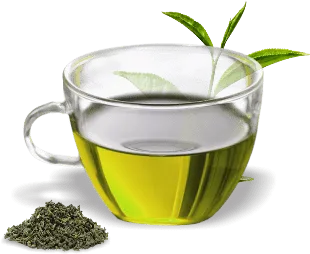
Green Tea
This study published in Clinical Cancer Research says: These results suggest that drinking green tea can encourage cancer chemotherapy and may improve the quality of life of clinical patients.
Genistein
This study published in Obstetrics & Gynecology Science says: Genistein enhances the anticancer effect of cisplatin…and can be used as a chemotherapeutic adjuvant to increase the activity of a chemotherapeutic agent.
Fermented Wheat Germ Extract (FWGE)
This study published in Nutrition Journal found: Clinical data from a randomized phase II trial in melanoma patients indicate a significant benefit for patients treated with dacarbazine in combination with FWGE in terms of progression free survival (PFS) and overall survival (OS). Similarly, data from studies in colorectal cancer suggested a benefit of FWGE treatment. In conclusion, available data so far, justify the use of FWGE as a non-prescription medical nutriment for cancer patients.
See Avemar page
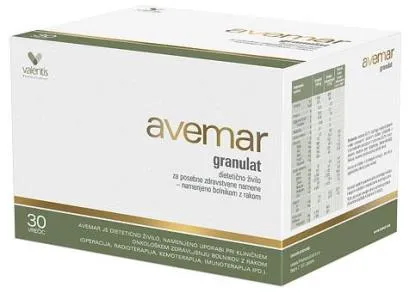
Quercetin
This study published in Oncology Letters says: We suggest that inclusion of quercetin to the conventional chemotherapeutic agent 5‑FU may be an effective therapeutic strategy for esophageal cancer.
This 2020 Study published in Cell and Bioscience says: According to the obtained evidences, quercetin can prevent ovarian cancer through a couple of mechanisms including anti-inflammation, pro-oxidation, anti-proliferation, and cell cycle arrest.
Melatonin
This Study published in Oxidative Medicine and Cellular Longevity says: One clinical trial included 70 cancer patients (advanced NSCLC) who were treated with a combination of cisplatin plus etoposide or the chemotherapy drugs plus melatonin. On the basis of complete and partial tumor response rate, melatonin enhanced the effect of cisplatin plus etoposide, and improved the 1-year survival rate. Furthermore, the incidences of myelosuppression, neuropathy, and cachexia were significantly reduced, indicating that patients treated with melatonin had better tolerance to chemotherapy. Another clinical trial treated a total of 250 patients with metastatic solid tumors who were given a variety of different chemotherapies alone or in combination with melatonin. The objective tumor regression rate and the 1-year survival rate were again improved by melatonin cotreatment. Moreover, melatonin significantly alleviated the incidence of thrombocytopenia, neurotoxicity, cardiotoxicity, stomatitis, and asthenia
Berberine
This Study published in the Journal of Cancer says: …our findings demonstrate that berberine sensitizes drug-resistant breast cancer to chemotherapy and directly induces apoptosis [programmed cell death]. Berberine appears to be a promising chemosensitizer and chemotherapeutic drug for breast cancer treatment. See Berberine page

Curcumin
This Study published in Journal of the Korean Society for Applied Biological Chemistry says: …combination use of curcumin and available anticancer drugs has great potential to enhance chemotherapy efficacy and improve clinical treatment of cancer.
See Curcumin page
Aloe Vera
This Study published in In Vivo says:
The percentage of both objective tumor regressions and disease control was significantly higher in patients concomitantly treated with Aloe than with chemotherapy alone, as well as the percent of 3-year survival patients.
Dipyridamole
This Study published in American Journal of Translational Research says: Dipyridamole (DIP) inhibits thrombus [clot] formation when given chronically, and causes vasodilation over a short time. To date, DIP can increase the anticancer drugs (5-fluorouracil, methotrexate, piperidine, vincristine) concentration in cancer cells and hence enhance the efficacy of cancer treatment. The inhibition of DIP may result in increased 5-fluorouracil efficacy and diminish the drug side effects.
Hedyotis Diffusa
An herb used in traditional Chinese medicine to treat certain medical problems. It has been used to boost the immune system and may have anticancer effects. Source: National Cancer Institute.
This study published in Evidence-based Anticancer Materia Medica says: Both pre-clinical and clinical studies have established the efficacy and safety of spreading hedyotis in treating various cancers including stomach cancer, liver cancer, lung cancer, esophagus cancer, and leukemia. It can directly inhibit the growth of various cancer cells…It also has immune modulation functions against cancer…Clinical outcomes have demonstrated that it can enhance the efficacies and reduce the adverse effects (i.e. white blood cell decrease, nausea/vomit) by the conventional chemotherapies. It is also effective in relieving cancerous pain and fever.
Flufenamic acid
This study published in Nature says: One particular non-steroidal anti-inflammatory drug, flufenamic acid…decreased the cisplatin-resistance and invasion potential of metastatic sublines
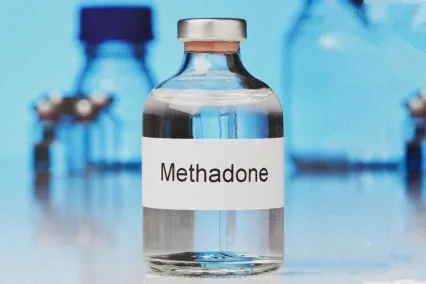
Methadone
This 2017 study published in Frontiers in Oncology says: There is evidence from preclinical studies that methadone could also elicit antitumor activity by downregulating the
threshold of apoptosis and to enhance the effects of different chemotherapeutic agents. This confirms the concept of using methadone as a chemosensitizer in the future treatment of cancer.
Download Free eBook:
How to reduce chemo side effects

4. Reduce Cancer Cachexia risk
By some estimates, nearly one-third of cancer deaths can be attributed to a wasting syndrome called cachexia, according to the National Cancer Institute.
This study published in Oncotarget says: Cancer Cachexia affects
50–80 % of advanced cancer patients, with currently no effective treatments. Cachexia is defined by increased fatigue and loss of muscle function. This results in diminished physical activity, reduced tolerance to anticancer therapies and decreased survival. Available evidence suggests that chemotherapy (i.e. the use of cytotoxic and anti-proliferative drugs) may play a key role in the development and sustainment of cachexia.
The following can help:

Physical activity
This 2019 study, published in the American Journal of Lifestyle Medicine concluded: Muscle metabolic health and mass are dramatically affected by physical activity and exercise. Physical activity and exercise are already thought to be beneficial during cancer treatment and survival and hold clear potential as a nonpharmacological treatment for muscle wasting conditions.
See Physical Exercise
Melatonin (MLT)
A hormone made by the pineal gland. Melatonin helps control the body’s sleep cycle, and is an antioxidant. It is also made in the laboratory and sold as a supplement. Source: National Cancer Institute.
Study published in European Journal of Cancer states: … this study shows that MLT may counteract weight loss that occurs with progressing cancer…
Study: a randomized study was carried out in patients with metastatic solid tumors comparing a combination of low-dose IL-2 plus melatonin with best supportive care. In the treated group, the percentage of patients with improved performance status, as well as overall survival, was significantly higher than the controls.
See Melatonin page
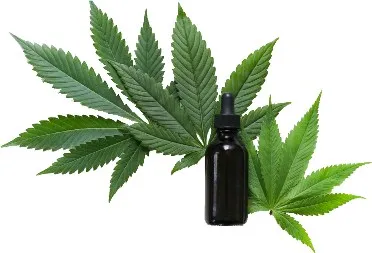
Cannabinoids
A type of chemical in marijuana that…may help treat the symptoms of cancer or the side effects of cancer treatment. Source: National Cancer Institute.
Study published Current Oncology says: Cannabis is useful in combatting anorexia, chemotherapy-induced nausea and vomiting, pain, insomnia, and depression. Cannabis might be less potent than other available antiemetics, but for some patients, it is the only agent that works, and it is the only antiemetic that also increases appetite.
Omega 3 Fatty Acids
Study published in Current Problems in Cancer says: patients with the lowest n-3 fatty acids in plasma PL experience muscle loss whereas those with the highest n-3 fatty acids gain muscle over the course of chemotherapy.
Study published in GUT states: In cancers where high inflammatory stress is usual, protein rich supplements containing n-3 polyunsaturated fatty acids and high levels of antioxidant vitamins can reverse severe weight loss.
[cancerireland.ie note:
The 3 major antioxidant vitamins are beta- carotene, vitamins C
and vitamin E.]
Using Antioxidants during chemo
Many oncologists advise against taking supplemental antioxidants during chemotherapy. Many integrative oncologists and practitioners, on the other hand, believe that antioxidants taken during treatment not only alleviate some of the treatment side effects but also enhance the efficacy of the treatment.
The latter view is supported by this 2018 Study Review published in the Saudi Pharmaceutical Journal. It encompasses a total of 174 peer-reviewed original articles comprising 93 clinical trials with a cumulative number of 18,208 patients, 56 animal studies and 35 in vitro studies.
The authors say their data suggests that antioxidant has superior potential of ameliorating chemotherapeutic induced toxicity. Antioxidant supplementation during chemotherapy also promises higher therapeutic efficiency and increased survival times in patients.
Pomegranate
Study published in Current Problems in Cancer says: COX-2 expression is increased in cachexia…Pomengranate juice resulted in the highest level of COX-2 suppression (79%) compared to treatment with single constituents. The effects are attributed to synergistic activity of the various pomegranate components necessary for anti-inflammatory and anti-carcinogenic activity.

Endurance training
Study published in American Journal of Lifestyle Medicine says: Muscle metabolic health and mass are dramatically affected by physical activity and exercise. Physical activity and exercise are already thought to be beneficial during cancer treatment and survival and hold clear potential as a non-pharmacological treatment for muscle wasting conditions.
Review published in Applied Physiology, Nutrition, and Metabolism recommends patients to maintain as much physical activity as possible, given their particular impediments, during cancer treatment and recovery. The recommendation for healthy individuals is of at least 150 min of moderate-intensity or 75 min of vigorous-intensity activity each week, or an equivalent combination, preferably distributed throughout the week.
Hydrazine Sulfate
A substance that has been studied as a treatment for cancer and as a treatment for cachexia (body wasting) associated with advanced cancer. Source: National Cancer Institute.
Study: There is good evidence that hydrazine sulfate inhibits gluconeogenesis [converting fats or proteins into sugar]. Therefore, it may play a role in reducing the severity of cachexia and in improving the quality of life of cancer patients. Dr. Joseph Gold, an American research oncologist, found that in clinical studies, the use of hydrazine sulfate resulted in improved appetite and reduced weight loss, and he proposed that it be used as an adjuvant therapy to prevent cachexia.

Low carbohydrate diet
Study published in BMC Medicine says: a switch to a low carbohydrate/ketogenic diet has been shown to prevent cachexia in patients undergoing chemotherapy, suggesting this dietary approach may be a suitable alternative for cancer patients at risk of cachexia, sarcopenia, and weight loss.
Metoclopramide
A drug used to treat certain stomach problems and nausea and vomiting caused by chemotherapy.
Source: National Cancer Institute.
Study: Metoclopramide significantly reduced many CADS [cancer- associated dyspepsia syndrome ] symptoms in our group of 20 advanced cancer patients. Higher doses or different dose schedules might have been superior. Overall our study group enjoyed a 53% reduction in symptoms, with anorexia, bloating, belching, and nausea significantly relieved after treatment.
Megestrol
A drug used to treat advanced breast and endometrial cancer. It is also being studied in the treatment of anorexia and cachexia in patients with cancer – National Cancer Institute.
Study published in Radiotherapy and Oncology says: Megestrol acetate can significantly decrease the degree of body weight loss, and can prevent the deterioration of appetite in patients with head and neck cancers receiving radiotherapy.
See Reduce Cachexia Risk page.
